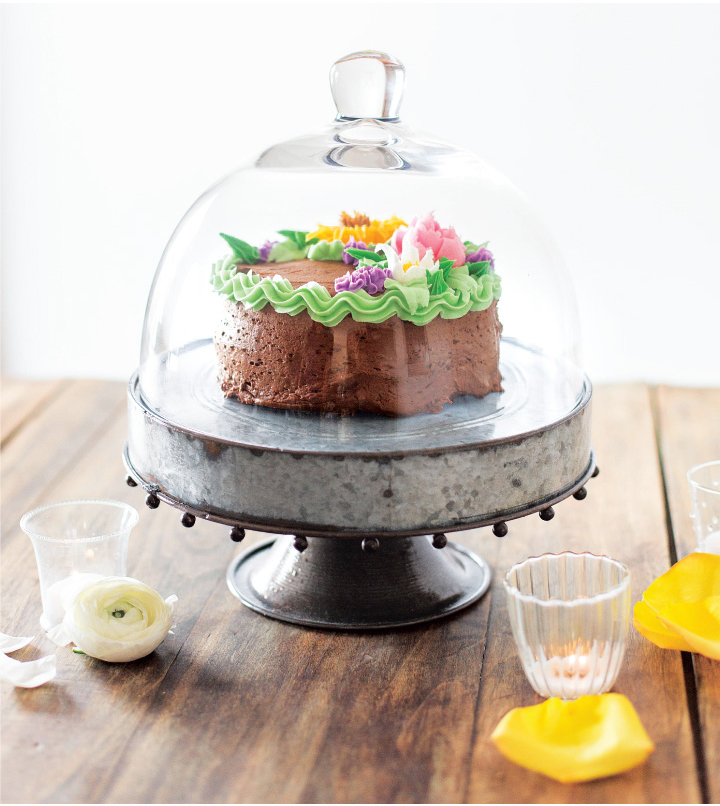Baking 101 For Beginners: Essential Tips To Starting Off Right
Yes, baking can be intimidating--visions of cookies that flatten and burn, lopsided cakes, or soufflés that don't "pouf." While baking is somewhat of a science, practicing these essential tips will have you baking up beautiful homemade goodies just like Julia Child in no time.


Get Familiar
Before you begin, be sure to read the recipe very carefully. Make sure you understand the techniques it requires (do "cream together", "cut in", or "fold" ring a bell?) and take the time to thoroughly review the instructions step-by-step. If you don't know what a particular term means, a quick internet search or glance at the glossary of a cookbook will do the trick.

Be Prepared
Make sure you have all the ingredients and tools needed for your recipe out and ready before you begin. Nothing causes more of a delay during baking than realizing you don't have a particular ingredient or having to dig around in the back of a kitchen drawer to find your measuring spoons.

Mind the Temperature
Always, always, always mind the temperature of your ingredients and your oven as they play a huge role in the end result. For instance, most cookie recipes call for ingredients to be at room temperature, while recipes for pie crust call for them to be cold, cold, cold. Make sure your oven is properly pre-heated to the recipe's specified temperature before you place your items inside.

Prep Your Pan
If the recipe calls for a cake pan to be greased or cookie sheet to be lined with parchment paper, don't ignore it! Not only will it help your treats to turn out perfectly, it will also protect your pans and make clean up a breeze. Don't have parchment paper? Foil will work just as well in its place.

Liquid vs. Dry
Not all measuring cups are created equal. Why you ask? Aren't they the same measurement? Technically, yes. However, pouring liquid into a dry measuring cup is just asking for a spill, and it can be difficult to level dry ingredients in a liquid measuring cup to get the exact amount. Yes, this is nit-picky, but if you use liquid measuring cups for liquids and dry measuring cups for dry ingredients, you'll get precise measurements and create less mess.

All in Good Order
Never throw all the ingredients together in a bowl willy-nilly. When it comes to baking, it really does matter in which order the items are mixed. Why? It prevents your mixture from clumping, curdling, and other unsavory outcomes in addition to making sure everything is blended together uniformly. Generally, dry ingredients are mixed together in one bowl, wet ingredients in another, then the dry are gradually added and mixed in to the wet. Double check your recipe's directions and follow the order exactly.

Perfect Timing
Most recipes are very specific about the amount of time an item should bake. Even just a difference of one minute can make or break a recipe! Be sure to set a timer and keep a close eye on the item you're baking, especially if you're just becoming familiar with how your oven performs. Take a peek a minute or two before the timer is set to go off to see how things are coming along. If you notice its "done" before the timer goes off, go with your gut and take it out. If the timer goes off but the item doesn't look quite done, add another minute at a time until it's ready.

